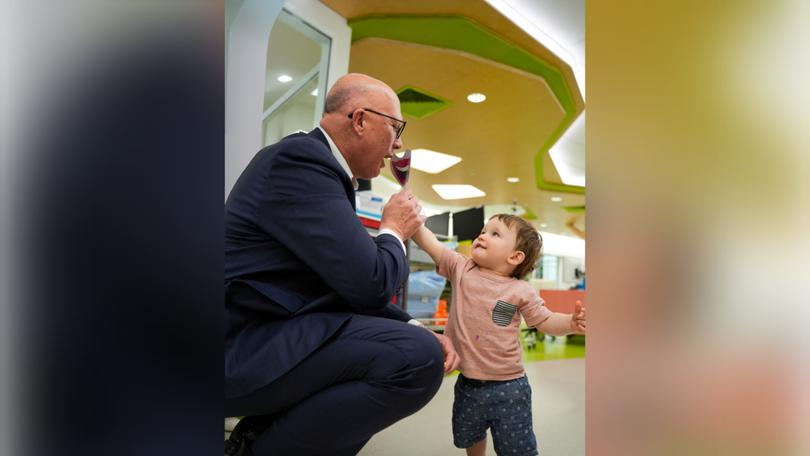Federal Labor to target ‘hard man’ Peter Dutton in negative campaign switch also focusing on cost of living
The Albanese Government is planning to run a negative campaign against Peter Dutton’s ‘unlikeability’ and ‘hard man’ image as they switch up campaign tactics ahead of the election.

The Albanese Government is planning to run a negative campaign against Peter Dutton’s “unlikeability” and “hard man” image as they switch up campaign tactics ahead of the election.
Multiple Labor insiders acknowledge Prime Minister Anthony Albanese is increasingly on the nose with voters but they say Opposition Leader Peter Dutton is even more disliked.
A senior party source said the Government would be able to campaign on its record and plan for the future while also painting the Federal election due by mid-May as a choice between the two leaders.
Sign up to The Nightly's newsletters.
Get the first look at the digital newspaper, curated daily stories and breaking headlines delivered to your inbox.
By continuing you agree to our Terms and Privacy Policy.Senior ministers are confident Labor will boost its stocks when voters focus on the real possibility of Mr Dutton becoming prime minister, pointing to his unlikeability and negative “hard man” image.
Another Labor insider said it was always going to be a negative election campaign going up against Mr Dutton, likening it to a knife fight inside a telephone booth.
On the Liberal side, MPs, candidates and party figures repeatedly point to people’s opinions about Mr Dutton improving when they meet him in person — but no leader can meet every voter.
One Liberal said this election was always going to be personal and negative, adding that Labor seemed to be rolling out the same playbook it used effectively against Scott Morrison in 2022.
Labor’s campaign switch will also include a renewed focus on tackling everyday cost of living pressures — like grocery prices and tap-and-go card fees — as the election nears but economists say the measures, while worthwhile, won’t help people’s hip pockets right now.
As the Government languishes at level pegging in the polls, at best, senior party figures hope the change in political tactics will cut through with people.
Over the past month, the Government has announced a string of smaller cost-of-living measures including crackdowns on supermarket price gouging and “shrinkflation”, a move towards banning debit card fees that make people pay to use their own money, and an end to hidden fees and dynamic pricing for online purchases such as concert tickets.
The senior Labor source said this was a deliberate switch in tactic to meet voters on the things they were worrying about every day.
People were deluged with so much information in the modern era that they had become good at screening out things that weren’t relevant to them, but they were picking up on the action on grocery prices, card fees and similar, the source said.
“The government has been trying to build on the big measures we did in the first half of the year with a steady drumbeat of small and practical actions in areas that people feel it the most,” they said.
Economist Andrew Barker, the Committee for Economic Development of Australia’s head of research, said these types of measures were worthwhile in their own right and less likely to stoke inflation than “big bang measures” like the energy rebates announced earlier in the year, but were unlikely to offer any immediate relief.
“That’s because it’s going to take time for these changes to flow through to prices and to deliver cost of living relief,” he told The West.
“I guess whether people feel like they’re having an effect is probably going to depend a lot on the path of inflation, which is expected to keep easing over the next year.”
Senior research fellow with the Bankwest Curtin Economics Centre Silvia Salazar said the crackdowns wouldn’t have any impact in the six months ahead of the election but they should increase competition and ease pressures in the long term, especially on grocery prices.
“What we’re looking at right now in … this cost of living crisis is we are not only spending less on this discretionary expenditure, but also all of our essential expenditures,” Dr Salazar said.
“We are spending less on food. We are shifting the way we consume food and other purchases, and those are the measures that will probably have the biggest impact on people’s cost of living.
“Of course, it’s great if you can pay less if you go to a concert, but this is not the kind of measure that people feel it will impact on you every day.”

